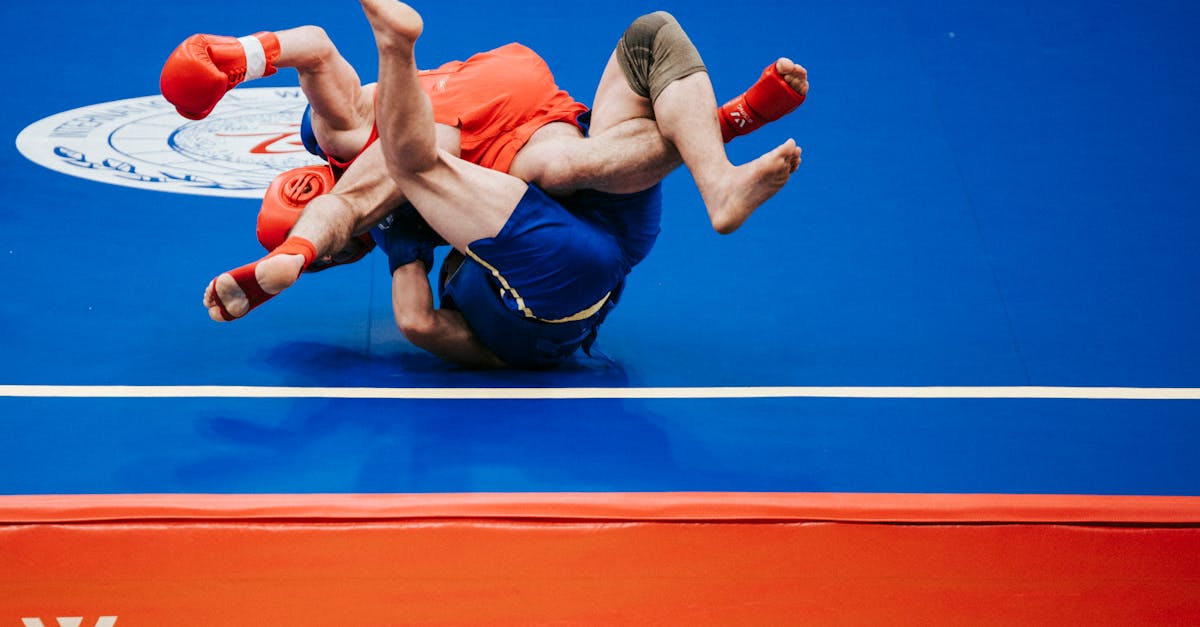When it comes to fueling your athletic performance, one question often comes up: sports dietitian vs sports nutritionist—who should you see? While both professionals play an important role in guiding athletes and fitness enthusiasts, the qualifications, training, and scope of practice can vary significantly. Understanding these differences can be the game-changer you need to improve recovery, prevent injuries, and boost overall performance.
If you’re an athlete, weekend warrior, or someone who simply wants to use nutrition as a tool for better health, choosing the right professional matters. Let’s break down the similarities, differences, and practical reasons why one may be better suited for your unique goals.
Understanding Sports Dietitians and Sports Nutritionists
Before deciding which professional to consult, it’s essential to truly understand what sets sports dietitians vs sports nutritionists apart. Both aim to improve your nutrition and performance, but their paths, credentials, and the type of guidance they provide can be quite different.
Sports dietitians are recognized medical professionals trained under strict clinical and academic requirements. They integrate science, medicine, and sports physiology to create tailored nutrition strategies. On the other hand, sports nutritionists may focus more broadly on healthy eating and performance enhancement without necessarily having a clinical background.
Key Takeaway
Think of a sports dietitian as your “scientist-meets-coach” who uses proven medical expertise, while a sports nutritionist is more of a guide who helps you navigate general nutrition choices for fitness.
Sports Dietitians Definitions and Roles
Sports dietitians specialize in individualized nutrition plans rooted in evidence-based science. Their role goes beyond just telling you what to eat—they take into account your body composition, metabolic rate, training intensity, and even underlying health conditions.
Some responsibilities include:
- Conducting nutritional assessments and tracking performance metrics.
- Designing personalized meal plans for peak energy and faster recovery.
- Educating athletes about macronutrients (carbs, proteins, fats) and micronutrients (vitamins, minerals).
- Managing medical-related concerns such as diabetes, food allergies, or gastrointestinal issues.
- Collaborating with doctors, physiotherapists, and coaches to provide a holistic health plan.
In 2025, many sports dietitians also use wearable technology and AI-driven nutrition apps to monitor hydration, caloric intake, and recovery markers in real-time. This data-driven approach is transforming performance nutrition.
Sports Nutritionists: Credentials and Qualifications
When it comes to sports dietitian vs sports nutritionist, one of the biggest distinctions lies in credentials. Sports nutritionists may hold diverse qualifications. Some complete advanced degrees in nutrition science or exercise physiology, while others obtain certifications from short courses or online programs.
Key responsibilities often include:
- Offering general dietary advice for improved energy and recovery.
- Guiding athletes on hydration strategies and fueling for workouts.
- Promoting healthy eating habits to prevent fatigue and maintain endurance.
- Helping with weight management for competition categories (e.g., wrestling or bodybuilding).
However, sports nutritionists usually cannot diagnose medical conditions or prescribe medical nutrition therapy. Their expertise is more practical and lifestyle-focused than clinical.
If you’re training for a marathon and just want advice on what snacks to carry or how to hydrate properly, a sports nutritionist can help. But if you’re recovering from an injury or dealing with an underlying health condition, you’ll want a sports dietitian.
Choosing between a sports dietitian and a sports nutritionist depends on your specific goals and requirements. Knowing their roles and qualifications aids in making an informed decision that best suits your athletic journey.
Key Differences Between Sports Dietitians and Sports Nutritionists
Understanding the key differences between sports dietitians and sports nutritionists helps you choose the right professional for your dietary needs. Both play vital roles in enhancing athletic performance, yet their qualifications and expertise vary.
Sports Dietitian Scope of Practice
Sports dietitians hold a credential known as Registered Dietitian Nutritionist (RDN). They complete extensive education, including a bachelor’s degree, supervised practice experience, and passing a national exam. Sports dietitians provide tailored nutrition plans based on scientific evidence and clinical guidelines. They assess dietary habits, consider individual health conditions, and develop strategies to optimize performance, recovery, and overall health. They often collaborate with doctors, coaches, and other health professionals to address specific concerns. This collaboration ensures a comprehensive approach to performance nutrition, offering you valuable insights and recommendations.
Sports Nutritionist Approaches to Nutrition
Sports nutritionists may not hold the RDN credential and can have varied levels of training. Their focus tends to be on general dietary advice related to improving performance and enhancing recovery. Sports nutritionists often emphasize meal planning, hydration, and food choices for energy.
While beneficial, their approaches might lack the personalized strategies and clinical considerations offered by sports dietitians. Sports nutritionists may provide helpful guidance, but they typically do not diagnose medical conditions or create detailed nutrition plans tailored to individual needs. If you seek advice based on personal health and performance goals, a sports dietitian’s expertise proves invaluable.
Understanding these distinctions empowers you to make informed decisions about your nutrition support, allowing you to maximize your athletic potential.
Let’s break down the comparison between sports dietitian vs sports nutritionist in a structured way:
| Feature | Sports Dietitian | Sports Nutritionist |
|---|---|---|
| Credentials | Registered Dietitian Nutritionist (RDN) | Varies—can include certifications, diplomas, or degrees |
| Education | Bachelor’s + supervised practice + national exam | Ranges from short courses to advanced degrees |
| Scope of Practice | Clinical and performance nutrition, medical nutrition therapy | General dietary advice, performance enhancement |
| Collaboration | Works with doctors, coaches, and healthcare teams | Works independently or in gyms, wellness centers |
| Specialization | Can diagnose and treat diet-related medical conditions | Focuses on meal planning, hydration, energy |
| Best For | Athletes with specific health conditions, elite athletes, or those needing evidence-based, tailored plans | Fitness enthusiasts, recreational athletes, or those seeking general guidance |
Importance of Choosing the Right Professional
Choosing the right professional for nutrition guidance impacts your athletic performance significantly. Each has unique qualifications, influencing how they support your fitness journey.
Sports Dietitian Personalized Nutrition Plans
Sports dietitians create personalized nutrition plans tailored to your specific needs. Their expertise lies in assessing your dietary habits, understanding your health conditions, and applying scientific research. Sports dietitians can develop customized strategies focusing on your goals—whether improving endurance, building muscle, or enhancing recovery. They utilize evidence-based practices, ensuring you receive precise advice and guidance.
Collaboration with other health professionals enhances their approach, providing a comprehensive support system. Their training equips them to consider nutritional biochemistry, metabolic rates, and exercise physiology when formulating your plan.
Sports Nutritionist Performance Enhancement
Sports nutritionists primarily concentrate on performance enhancement through general dietary advice. They guide meal planning, hydration, and food choices that boost energy levels and optimize performance. Though they may lack the extensive qualifications of dietitians, many bring practical experience and knowledge of dietary trends within athletics.
Sports nutritionists focus on increasing your awareness of nutrition’s role in athletic success, offering easy-to-implement tips and strategies. Their insights can help you make informed choices about what to eat before training, during events, and post-exercise recovery. By understanding your body’s energy requirements, sports nutritionists empower you to enhance performance and reach your athletic goals.
How to Find a Qualified Sports Dietitian or Nutritionist
Finding a qualified sports dietitian or nutritionist boosts athletic performance and supports health goals. Follow these steps to locate the right professional for your needs.
Assessing Qualifications
Assess qualifications by checking credentials. Look for a Registered Dietitian Nutritionist (RDN) for sports dietitians. RDNs complete a bachelor’s degree in nutrition, a supervised practice program, and pass a national exam. Evaluate any certifications in sports nutrition. Some nutritionists may have relevant degrees but might not hold RDN credentials. Verify their experience working with athletes. Feedback from previous clients showcases their ability to provide tailored services.
Review membership in professional organizations, like the Academy of Nutrition and Dietetics or the Sports, Cardiovascular, and Wellness Nutrition (SCAN). Membership often signifies adherence to industry standards and ongoing education. Check if they participate in continuing education to stay updated on new research. Confirm that they have a clear understanding of exercise physiology and nutritional science, ensuring they provide safe and effective guidance tailored to your goals.
Questions to Ask Potential Professionals
Ask targeted questions to assess expertise and fit with your needs. Inquire about their education and training focused on sports nutrition. Discuss their experience working with athletes in your specific sport. Request examples of success stories or case studies related to your goals, such as improving performance, recovery, or injury prevention.
Ask how they tailor nutrition plans for different athletes, considering factors like age, activity level, and health conditions. Clarify their approach to hydration and fueling before, during, and after training sessions. Determine how often you can expect follow-up sessions. Frequent check-ins ensure continued support and adjustments to your plan.
Discuss their methods of tracking progress. Find out if they utilize tools like body composition analysis or performance metrics. Finally, gauge their communication style to ensure it aligns with your preferences. Establishing a comfortable rapport is crucial for success in achieving your nutrition and performance goals.
Conclusion
Choosing between a sports dietitian and a sports nutritionist can truly impact your athletic journey. By understanding their unique qualifications and expertise you can find the right fit for your needs. Whether you’re looking for personalized nutrition plans or practical dietary advice both professionals play vital roles in enhancing performance.
Remember that your nutrition is the backbone of your success. So take the time to explore your options and ask the right questions. With the right support you’ll be on your way to reaching new heights in your athletic performance. Go get that edge you deserve!
Frequently Asked Questions
What is the difference between a sports dietitian and a sports nutritionist?
Sports dietitians are registered professionals with the RDN credential, capable of designing tailored nutrition plans based on scientific evidence and individual health needs. In contrast, sports nutritionists may have diverse educational backgrounds and primarily provide general dietary advice without the ability to diagnose health conditions.
How can a sports dietitian enhance athletic performance?
A sports dietitian assesses an athlete’s dietary habits, health conditions, and performance goals. They create personalized nutrition plans that optimize energy levels, recovery, and overall health, incorporating knowledge of nutritional biochemistry and exercise physiology.
What qualifications should I look for in a sports dietitian?
When seeking a sports dietitian, ensure they have the Registered Dietitian Nutritionist (RDN) credential. Additionally, evaluate their experience with athletes, check for membership in professional organizations, and ask about their approach to creating individualized nutrition strategies.
Can a sports nutritionist help athletes?
Yes, sports nutritionists assist athletes by providing general dietary advice and practical strategies to enhance performance. They can help with meal planning, hydration, and food choices, enabling athletes to understand how nutrition contributes to their success, even if they lack clinical training.
How do I find a qualified sports nutritionist?
To find a qualified sports nutritionist, start by researching their education and experience related to sports. Look for reviews or referrals, and don’t hesitate to ask about their approach to nutrition and what qualifications they hold to ensure they align with your dietary needs.



